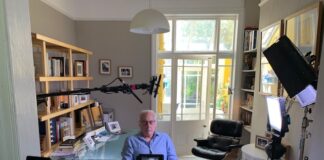- I predict another riot… - 30th January 2026
- Force for change - 29th January 2026
- Greener with envy… - 28th January 2026

The suspended jail sentence today of disgraced newsreader Huw Edwards, who was found with dozens of pictures of children including one of a young child, possibly aged between seven and nine years old, has highlighted the extraordinary behaviour of major organisations in Wales.
Edwards was given a six-month jail sentence suspended for two years for accessing indecent images of children.
He appeared before Paul Goldspring Senior District Judge (Chief Magistrate) for England and Wales.
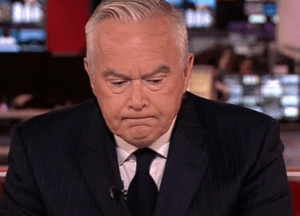
The court had heard earlier about a conversation he engaged in with a young man at the centre of it all.
Edwards had communicated with Alex Williams (then a 19 year old university student) in a way that was “sexual in nature” and he paid in the “low hundreds of pounds on an occasional basis” for pornographic images. Edwards sent Williams a total of £1,000 to £1,500, which he said was to support him at university.

However this penalty comes amid enormous internal criticism in Wales over the slowness of official bodies in taking action against the once high-profile newsreader
For instance authorities at the Eisteddfod finally expelled Edwards from the Gorsedd of the Bards – one of the highest accolades in Welsh public life – but had said originally that they didn’t have a ‘process’. This was a week after he had formally admitted to the awful practice in Westminster Magistrates’ Court, and even then there was a delay – Edwards had 21 days to appeal the decision and was not to be removed until then. In getting rid of Edwards, the Eisteddfod board said it had activated a ‘relevant’ section of its constitution to remove him. Earlier the Gorsedd recorder, or secretary, Christine James had declared the issue would be ‘discussed’ when it met, and that it did “not have a process or a specified mechanism to expel members”. In a statement, Ms James stated: “In such matters, the Gorsedd is subject to the Eisteddfod Court”.

Edwards was also given honorary degrees by the universities of Bangor as well as Cardiff and Swansea, along with other awards, while his erstwhile employer The BBC continued to pay him thousands of pounds even though it KNEW he’d been arrested for downloading pornographic photographs of children.
Cardiff said after the guilty plea it was only “actively reviewing procedures in relation to the honorary fellowship award and his position as an honorary professor”.
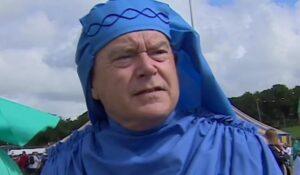
Apart from the Bardic accolade, Bangor originally also announced that it was merely ‘reviewing’ the honorary fellowship it had granted Edwards, and The Learned Society of Wales (LSW) said at first that it was ‘reviewing’ his recognition in the wake of his guilty plea. The Royal Welsh College of Music and Drama (RWCMD) and Swansea said they were not able to comment..
Apparently endorsing these astonishing events, the now-convicted television presenter became a hero to some in the Welsh nationalist and independence communities, although this provoked heavy criticism.
One leading Public Relations (PR) and marketing executive who wished to remain anonymous, told The Eye: “It has always seemed incredible to me, and now this just emphasises it. In the past we have even had Welsh nationalist or independence clients wanting to put Huw Edwards’ face on their products!”.
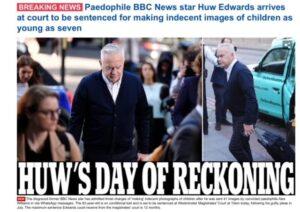 The pace of these events has caused fury from within the organisations. One whistleblower who is close to senior management, declared in Welsh to The Eye: “This is unbelievable. Haven’t these people heard of the phone or conference calls?!”. It was proclaimed: “Oh for God’s sake! The managers really are IDIOTS! People don’t care about ‘processes’, just that they have honoured a paedophile. if there is no process for getting rid of people, we need a new one. The situation is…bad for Wales”.
The pace of these events has caused fury from within the organisations. One whistleblower who is close to senior management, declared in Welsh to The Eye: “This is unbelievable. Haven’t these people heard of the phone or conference calls?!”. It was proclaimed: “Oh for God’s sake! The managers really are IDIOTS! People don’t care about ‘processes’, just that they have honoured a paedophile. if there is no process for getting rid of people, we need a new one. The situation is…bad for Wales”.
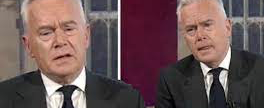
The context to Edwards’ suspended jail sentence is remarkable as whistleblowers have condemned senior executives. One said they were “disappointed” not to have heard more about an internal inquiry’s progress, a further critic said that it felt like “things have been swept under the carpet”.
It is clear that there has long been unease among Edwards’ colleagues about his behaviour.
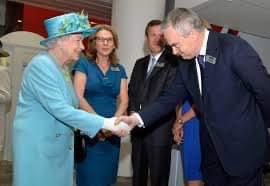
An item on The BBC website from Culture and Media Editor Katie Razzall proclaimed: “When I started at BBC News three years ago, a work friend gave me some advice about my new colleague Huw Edwards.
“‘You can be funny,'” they said. “‘But don’t be funnier than Huw’.
“‘You can be clever, but don’t be too clever.'”
The corporation (which has faced a number of controversies – see our story soon about the latest one concerning Jay Blades) have said sorry for the way it handled a complaint about another issue concerning Edwards, but this has only served to throw the spotlight on the enormity of what took place, and was set against an assurance that a “very clear code of conduct” was followed.


Allegations about the behaviour of Edwards in this other matter were made in May last year but did not reach senior managers until July 6, with the complaint not being “escalated quickly enough”. An independent report by Deloitte into The BBC’s complaints handling procedure said a grievance about him by the family of a young person was made on May 18. But the case was not logged on the giant corporation’s ‘case management system’ so there “was no opportunity for wider visibility of the case within the BBC. There was no documented process for contact with the complainant and/or follow up”, the report noted. It found there was a need for “greater consistency” in how complaints are processed, and emphasised the appalling fact that when attempts to make contact were unsuccessful, the course of action was not clear.

Leigh Tavaziva, the corporation’s Group Chief Operating Officer (GCOO) said: “Although our existing processes and systems are, on the whole, working effectively, this review shows that we need to join them up better to ensure no matter how a non-editorial complaint comes into the BBC it is escalated swiftly, when needed, and dealt with by the right people”.
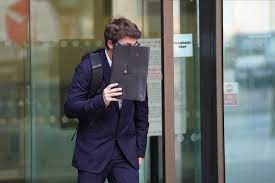
Journalists who covered the unbelievable incident, have seemingly supported criticism that The BBC effectively clammed up about it. For example, one Sky News journalist declared at the time: “The fact all of us broadcasters have asked, have put in requests again and again to speak to the director general, and the fact that he has only given an interview to his own people is not a good look for the BBC”.
Yet senior executives apparently took a different view. During a pre-arranged House of Lords (H of L) committee hearing about a week afterwards, The BBC’s Director General (DG) Tim Davie, said: “We have been in touch with the complainant”, and that due to the “history of this industry… we should all be concerned and appropriately diligent around the abuse of people in powerful positions”.
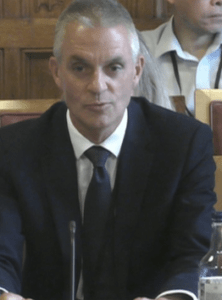
He proclaimed that when it came to presenters or people in power, it was important to be “very very clear about what your expectations are culturally as well as the policy”. Mr Davie was “proud of the work we’ve done over last few years” as there is now a “very clear code of conduct”.
In that hearing he sat alongside the then acting chairwoman, Dame Elan Closs Stephens (who, like Edwards, is also from Wales).She and Mr Davie were forced to answer important queries about the corporation’s attitude during the affair, following suggestions that it did not properly investigate the original complaint (which has now been borne out by the Deloitte report). Dame Elan told peers that despite “huge pressure” to name Mr Edwards, the corporation “had a duty to act with some calm and rationality in the face of lack of rationality and lack of calm”.

This came after days of speculation about who the presenter was who had been suspended for allegedly paying £35,000 to a teenager in exchange for sexually explicit images, and Welshman Mr Edwards was finally ‘outed’ by his wife. A news item on The BBC stated: “Vicky Flind, the wife of news reader Huw Edwards, has named him as the BBC presenter facing allegations over payments for sexually explicit images in a statement issued on his behalf”.

Harmful claims then emerged about Edwards’ actions generally at The BBC, but MailOnline said that senior executives “moaned” about missing Wimbledon and the Ashes to deal with them. There have been accusations that apart from the main story involving one young person, others were involved too, and that the presenter broke Covid-19 lockdown rules to meet one of them. It has been said that Edwards sent ‘menacing’ texts to an individual, and further allegations emerged following the original ones made in The Sun (the paper said it had a dossier of his alleged activities, but has chosen not to publish).

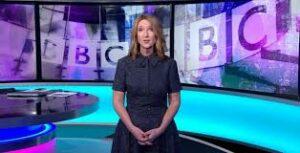
He was also accused of sending inappropriate messages to BBC employees. According to Newsnight, one current staff member claimed they were contacted on social media by him, and the messages left them feeling uncomfortable as well as awkward. The messages were reportedly suggestive in nature, appeared to be flirtatious, and referred to the appearance of Edwards’ colleague. “There is a power dynamic that makes this inappropriate”, the staff member said.

Another BBC employee alleged that Edwards had also sent them a private message on social media which commented, too, on their appearance and gave them a “cold shudder”.
Edwards was The BBC’s most well paid newsreader in a pay bracket of £435,000 to £439,999 – putting him fourth on the top 10 list, the corporation’s annual report revealed – yet it has now all come crashing down.
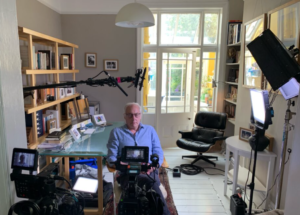
Edwards is himself proudly Welsh (he is originally from Bridgend), and this controversy came hard on the heels of others, with Mr Davie now under huge pressure. One former executive at the corporation told our Editor, Welshman Phil Parry: “Davie’s leadership credentials are in the spotlight. First the Lineker fiasco and now the Edwards’ public relations car crash. These episodes have done immeasurable damage to the BBC and both could have been avoided by immediate intervention”. Phil spent 23 years at the organisation, both in Cardiff and London, and says he has been left in a state of shock by what has happened, and this stance has been underlined by others.
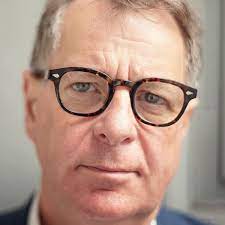
During the days in which Edwards went unnamed as the presenter at the centre of the alleged sex scandal, the publicist and strategist Mark Berkowski told Times Radio: “We’ve got a situation where it’s an ongoing car crash and the BBC is so glacial about how they’re dealing with this, because this is a 21st century problem,” David Keighley, the former BBC news producer and director of News-watch, spoke of “reputational damage” to the man’s colleagues.
However the supposed attitude of senior executives during the crisis also made headlines. One official reportedly said: “The only time I’ve seen my wife this weekend is when she was on TV”, adding: “We are all so sick and tired of these people”. The Times also reported it.
 A spoof mock up of a former BBC logo which circulated on the internet may not have been accurate, but showed the depths the corporation’s reputation sank to in the eyes of the public. It said: “BBC – Blokes Bumming Children”.
A spoof mock up of a former BBC logo which circulated on the internet may not have been accurate, but showed the depths the corporation’s reputation sank to in the eyes of the public. It said: “BBC – Blokes Bumming Children”.
This reputation will have sunk even lower after what has happened today to one of the corporation’s top presenters…










